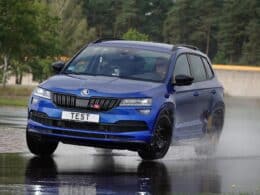The battery is the heart of the electric car. One variant is currently dominant worldwide.
When one speaks of e-car batteries, they are almost always lithium-ion batteries. They currently offer the best compromise of properties for use in motor vehicles. The technology, also known from smartphones and laptops, is mature, but not yet exhausted.
Lithium-ion batteries are called as they are called because the alkali metal lithium is in all of the important components of the energy storage system - that is, both in the two electrodes and in the electrolyte in between. In principle, other substances could also be used at these points, such as the closely related sodium or other reactive substances. Materials researchers are constantly testing such variants, but so far none has offered a better overall balance than lithium.
In the case of the e-car, numerous properties play a role in the suitability of a battery, some of which are mutually exclusive or impair one another. For example, the batteries need a high energy density so that they are not too big and heavy. Then it must be able to be charged sufficiently quickly and also last for hundreds of charging cycles without loss of capacity. The price, producibility and operational reliability must also be right. The lithium-ion battery is not superior to all other concepts in every respect, but it is currently the best compromise.
In addition, its potential is not yet exhausted, as Tesla recently showed. The Americans have not changed cell chemistry, but have drawn more power from their battery packs through clever electronics and intelligent construction. And with its lithium iron phosphate batteries, the Chinese BYD group has just brought the technology to the next stage of development. Above all, it should have advantages in terms of safety and should not be easily flammable.





